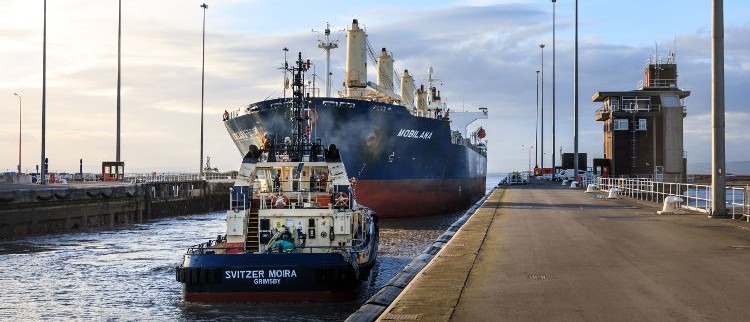Shipping Decarbonization Hinges on Owners of Cargo, Not ShipsThe single most important vessel-supply question for the coming decades is: Will the ocean shipping industry decarbonize on a global scale?
By Greg Miller for Freight Waves Feb. 7, 2020 - The single most important vessel-supply question for the coming decades is: Will the ocean shipping industry decarbonize on a global scale? Even those who view carbon reduction with contempt and are entirely focused on their own bank accounts take this question very seriously, given the enormous sums to be gained or lost. What’s at stake is nothing less than the long-term supply-demand balance of the world’s shipping network. Decarbonization would reduce the number of vessels at sea, revolutionize ship designs, and force ocean freight rates higher to cover the added cost. For this to happen, ship owners must be denied the capital to finance new carbon-emitting ships, and they must be forced to decarbonize via binding International Maritime Organization (IMO) regulations. None of that is possible unless it’s supported by the cargo side: the world’s largest ocean shippers of oil, gas, ore, coal and grain, as well as the governments of the countries that have the most to gain from ocean trade, whether of bulk commodities or containerized goods — particularly countries in Asia. The pro-decarbonization game plan was laid out in detail at the Hellenic-American/Norwegian-American Chambers of Commerce (HACC/NACC) Joint Shipping Conference in New York on Tuesday. Advocates claimed that not only ship finance but also cargo interests are on board. The shipping banks launched a decarbonization initiative called the Poseidon Principles in June 2019. According to Citi Global Head of Shipping Michael Parker, the chairman of the Poseidon Principles, the charterers that ship the cargo are about to follow suit. “There is a parallel initiative to the Poseidon Principles underway at the moment, currently code-named ‘The Charterers’ Charter,’” he disclosed. “They met with us when we started this process and diverged off because they were concerned that the banks would be too proscriptive. “They are right behind us. We expect something to come out [of the charterers’ side] by October, where the main users of [dry and wet] bulk shipping will have a view about the emissions of the vessels. It won’t just be about the emissions. It will be about cargo owners coming to a common set of principles on what vessels they will charter. Read the complete article at: Freight Waves |

